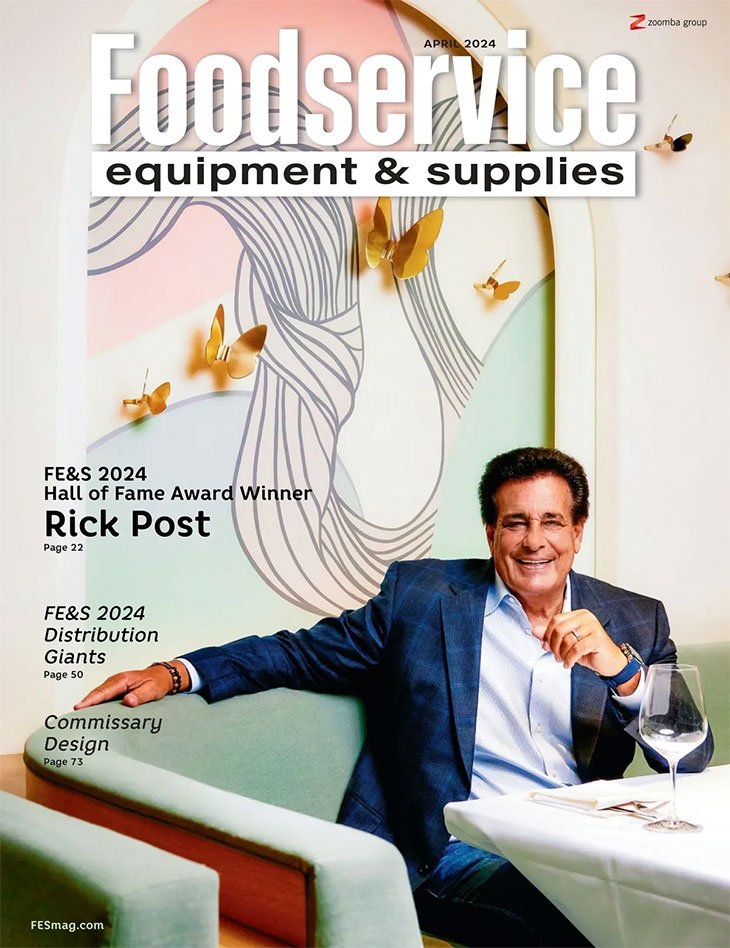Designing a restaurant is one thing. But developing a concept for a restaurant in a park? That's a whole other story entirely.
Just ask Chris Tripoli, FCSI, president of A'La Carte Foodservice Consulting Group in Houston, who specializes in concept development and MAS consulting for a variety of traditional and non-traditional foodservice operations for both independents and emerging chains.
 Chris Tripoli"There has been tremendous success in taking traditional restaurants and putting them in non-traditional locations, such as college campuses, city parks, stadiums, airports and libraries," says Tripoli. "Instead of just a plain snack bar with some crappy, overpriced sandwiches you recognize a brand instead."
Chris Tripoli"There has been tremendous success in taking traditional restaurants and putting them in non-traditional locations, such as college campuses, city parks, stadiums, airports and libraries," says Tripoli. "Instead of just a plain snack bar with some crappy, overpriced sandwiches you recognize a brand instead."
Airports in particular continue to capitalize on local, recognizable brands, even opting for them over national chains in some cases. "A lot of cities are opening the request for proposal process to local businesses. It's almost mandatory with some airports that a certain percentage of the submissions come from local brands," says Tripoli. Case in point: at Chicago's O'Hare airport, local acclaimed chef Rick Bayless' Tortas Frontera enjoyed instant success that led to plans for expansion. And Shake Shack in Manhattan operates successful kiosks in outdoor spaces near the city's working community.
These outlets not only appeal to local travelers but also to tourists wanting a taste of the city. By setting up shop in a non-traditional venue local operators boost their visibility. And by including them in their retail mix, the venues help create a feel-good mentality among the local business community. In other words, it's a win for both sides, says Tripoli. "What we found was by taking out a big cafeteria line or generic operation, we increase both food variety and choice. It's better quality in the same square footage."
When developing a non-traditional foodservice venue, Tripoli will look for small, independent restaurant owners with a good product and not a lot of replication throughout the city. After finding a concept that works in this project, Tripoli will teach and train these smaller operators how to play in a bigger sandbox.
Most recently, Tripoli's been working on a feasibility study to develop a foodservice concept in a park in the Texas suburbs. The steps involved in this type of work include working with the municipality to determine the type of foodservice operation wanted — in this case a small café and a community center with a catering hall for special events.
Next, Tripoli will collect research on the demographics of potential customers from the area for a comparison analysis. "You want to find out where these people are coming from, how often they go out, and how much they spend when they do," he says.
In the case of a park, the process tends to be trickier due to the variety of people using the space, from dog walkers and runners to families with children, to office workers looking for a quiet space to lunch to tourists and other visitors.
"You have to collect all the possible customer profiles and see where they overlap for similarities and differences," says Tripoli, who will gather research from governmental agencies, population banks, direct surveys and invited focus groups. "Often you need a concept that's broad enough to have morning coffee, juice and pastry for those walking their dogs and jogging, but you also might have to feed the masses, especially if there are children. The kite flyers who want a quick bite are different than the people who want to use the park for a wedding reception."
Lately, food trucks are a popular choice for introducing more flexibility to a multi-use space like a park. "You don't need to build a whole separate ice cream kiosk when you can bring in a local food truck to offer cupcakes and soft serve to the kids in the park," says Tripoli, who has also worked with a local donut maker to use a mobile cart to make fresh donuts and coffee for morning park patrons. "You need to define the best use of the park to get the best permanent foodservice operation that's common to all users."
The most common challenges with these types of non-traditional foodservice operations involve different needs for ventilation, grease traps and other needs for smaller or customizable equipment. Tripoli will work closely with designers to meet these needs.
"We have had the most fun lately looking for opportunities like these to work with traditional restaurateurs in non-traditional spaces. They're challenging, sure, but create a great niche service, he says.




